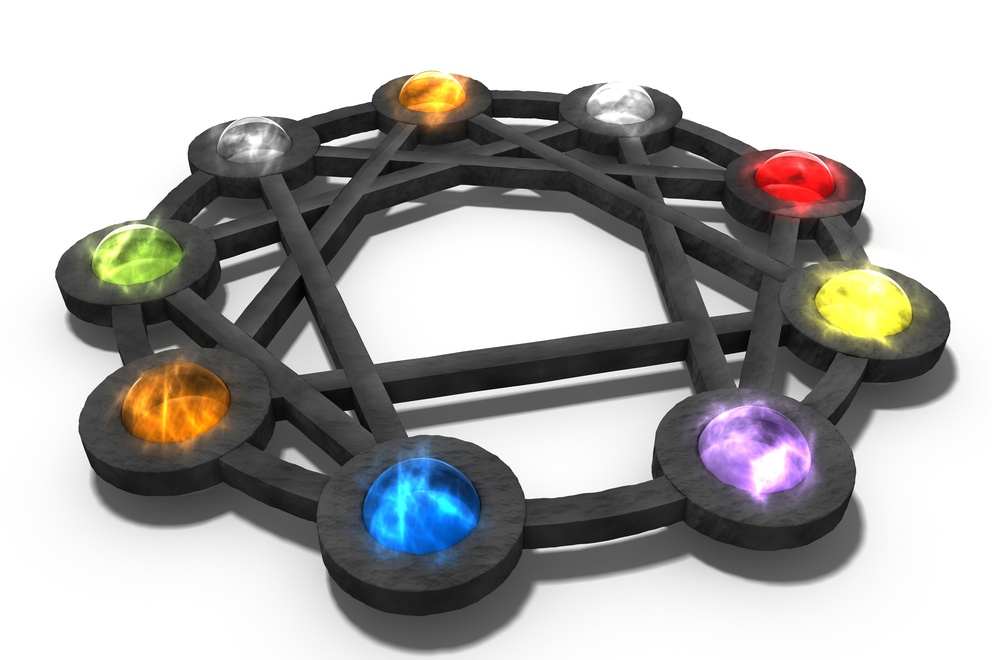
How does the world look to you? Maybe you see things and quickly think of how they can improve. You live by a strong inner ethic and a high set of standards that govern your words and actions. You’re infuriated by lack of order, unreliability, or laziness in others. At worst, there’s a powerful inner critic that no one else sees yet judges you for every misstep. If any of this rings true, you may be an Enneagram Type One. Keep reading for a fascinating look into Type One–the perfectionist with a purpose.
Type One: The Basics
Most enneagram scholars call Type One “The Reformer.” At its core, this personality focuses on improvement–both within itself and in the larger world. The Enneagram Institute describes Ones as rational and idealistic, often concerned with justice, ethics, self-control, and maintaining high moral standards. They try their best to live by these lofty values, sometimes at great personal cost.
If you’re a Type One, you may find it easy to relate to other reformers and perfectionists. Or you could butt heads because you’re both equally passionate about different ideals. If you’re not a Type One, you can still recognize them easily in both pop culture and real life. Famous Ones include former First Lady Michelle Obama, South African statesman Nelson Mandela, and singer Celine Dion. You may also see them in your favorite media: Star Trek’s Captain Jean-Luc Picard, Brooklyn Nine-Nine’s Amy Santiago, and Harry Potter’s Hermione Granger are all famous Type Ones.
Core Beliefs and Motivations of the Type One
In the enneagram, each type has basic desires and fears that drive their words and actions. Type Ones strive for integrity, balance, and virtue and fear being evil, corrupt, or substandard. Most are self-aware enough to know they have high ideals, but they also feel that possessing those ideals isn’t enough. They must live what they believe–and for some, that means being above reproach. Anything less is disingenuous.
Don Riso and Russ Hudson, co-founders of the Enneagram Institute, theorized that each of the nine types has childhood wounds. These partly influence how their personalities develop throughout the rest of their lives. Psychologist Jerome Wagner describes how this happens with Type Ones. Their parents may praise them for excellence–perhaps getting good grades or placing first in competitions. But when they fall short of the mark, their parents become disappointed and critical. This sends a message to the young Type One: “I’m only valued when I’m good or perfect.”
Healthy and Unhealthy Behaviors
Enneagram scholars say that each type expresses its core needs and fears in both healthy and unhealthy ways. At their best, Ones can achieve the balance they so strongly desire. They’re principled, honest, and just, but they have also made peace with themselves. As consultant Katherine Fauvre puts it, healthy Ones have gained a sense of serenity. They’re less likely to engage in fault-finding and understand that flaws have a purpose.
Type Ones can also fall into unhealthy thought patterns and behaviors. In their pursuit of perfection, they may become nitpicky, self-righteous, irritable, moody, and unable to relax. It becomes harder to see the good in others and the world around them. This fuels a vicious cycle. Ones get angry at the injustice and flaws they see, but they repress that anger. Stuffing that anger down makes them resentful, which in turn amplifies self-righteous and critical tendencies.
Self-Knowledge and Acceptance
Everyone’s personalities are different. But there are common core beliefs and needs that can motivate us. The enneagram examines these beliefs and needs, which fall into nine distinct personality categories. Understanding these, plus how they fuel our behaviors and viewpoints, can help us start breaking free from old habits and work toward personal growth.

